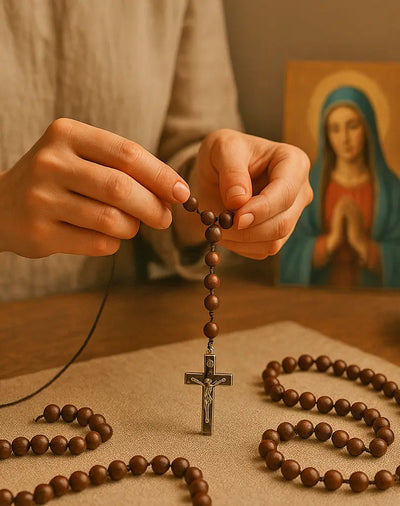“God's mercy is our liberation and our happiness. We live by mercy, and we cannot afford to be without mercy: it is the air we breathe. We are too poor to set conditions; we need to forgive, because we need to be forgiven.” If there is one message that more than any other characterized Pope Francis's pontificate and is destined to endure, it is that of mercy. The Pope left us suddenly this morning, after giving his final Urbi et Orbi blessing on Easter Day from the central balcony of St. Peter's Basilica, and after taking his final turn among the crowd, to bless and bid farewell.
Pope Francis' Apostolic Journey to Colombia - Cartagena 2017

The first Argentine pontiff in the history of the Church addressed so many themes, particularly concern for the poor, fraternity, care for our Common Home, and a firm and unconditional "no" to war. But the heart of his message, the one that undoubtedly made the most impression, was the Gospel call to mercy. To that closeness and tenderness of God toward those in need of his help. Mercy, like "the air we must breathe," is what we need most, without which it would be impossible to live.
The entire pontificate of Jorge Mario Bergoglio was lived under the sign of this message, which is the heart of Christianity. From the first Angelus, recited on March 17, 2013, from the window of the papal apartment he will never inhabit, Francis spoke of the centrality of mercy, recalling the words spoken to him by an elderly woman who came to confess with him when he was recently auxiliary bishop of Buenos Aires: "The Lord forgives everything... If the Lord did not forgive everything, the world would not exist."
The Pope who came "from the end of the world" did not modify the teachings of the two-thousand-year-old Christian tradition, but by placing mercy in a renewed way at the center of his teaching, he changed the perception that so many had of the Church. He bore witness to the maternal face of a Church that bends toward the wounded, and in particular, toward those wounded by sin. A Church that takes the first step toward the sinner, as Jesus did in Jericho, inviting himself to the house of the disgraceful and hated Zacchaeus, without asking anything of him, without preconditions. And it was because he felt seen and loved in this way for the first time that Zacchaeus recognized himself as a sinner, finding in that gaze of the Nazarene the impetus to conversion. So many people, two thousand years ago, were scandalized when they saw the Master enter the same house as the publican of Jericho. So many people have been scandalized in recent years by the Argentine Pope's gestures of welcome and closeness toward all categories of people, especially the "unpresentable" and sinners. In his first homily at a Mass with the people in the Church of Saint Anne in the Vatican, Francis said: "How many of us perhaps deserve condemnation! And that would also be just. But He forgives. How? With mercy, which does not erase sin: only God's forgiveness erases it, while mercy goes further. It's like the sky: we look at the sky, so many stars, but when the sun rises in the morning, with so much light, the stars are not seen. This is the mercy of God: a great light of love, of tenderness, because God forgives not with a decree, but with a caress."
Pope Francis' Apostolic Journey to Colombia - Cartagena 2017

It is that face and that embrace that so many have recognized in the elderly Bishop of Rome, who came from Argentina. He began his pontificate by praying for the migrants who died at sea off Lampedusa, and ended it confined to a wheelchair, dedicating himself until his last moment to bearing witness to the world of the merciful embrace of a God who is close and faithful in his love for all his creatures.
Andrea Tornielli • Vaticannews









































